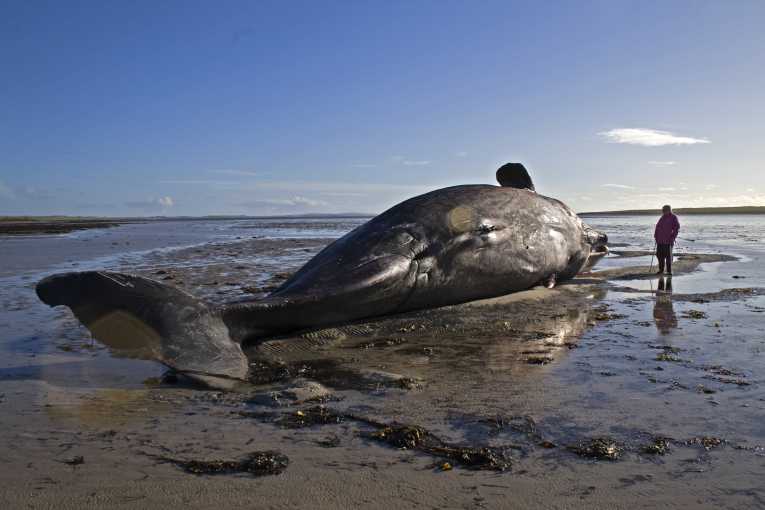In the past few years, whale strandings have risen, says a spokesperson for the Department of Environment and Conservation (DEC) in a May 4 article on ABC News. The DEC isn't sure why whales are stranding more frequently, he says, but it plans to investigate the causes.
The National Marine Fisheries Service (NMFS) has declared an Unusual Mortality Event (UME) in the Northern Gulf of Mexico for whales and dolphins from February 2010 to May 2011.
Only 4 percent of stranded whales and dolphins were stranded live, however, suggesting that while the Deepwater Oil Spill has affected whale populations, other causes have led to increased strandings throughout the world. Further, even before the oil spill, whale strandings had increased dramatically in this area. In March 2010, over 50 dolphins and whales were beached here, compared to an average of less than 20 each March from 2002 to 2009.
A number of recent strandings in other regions happened well before the Deepwater spill occurred. In March 2009, 194 whales and a small dolphin pod became stranded on the coast of Tasmania, and most did not survive. The previous November, 150 pilot whales died in another mass stranding in Tasmania, says the BBC News. In February 2011, 107 whales died on the coast of New Zealand. Whales seem particularly vulnerable in waters near Australia and New Zealand, during migrations to or from the Antarctic, the article notes.
The number of whale strandings on Western Australia's coast has been increasing, but scientists aren't sure whether it stems from increasing populations of whales or another phenomenon, says Daniel Mercer in The Western Australian.
Experts have long believed that sonar plays a central role in causing whales and dolphins to strand. In March 2011, a study published in the PLoS One (Public Library of Science) journal confirmed that sonar repels beaked whales, disrupting their natural behavior. This could cause the whales to go off course, swimming into shallow waters.
This supports other findings that sonar can disrupt the migration patterns of whales and other cetaceans, perhaps making them more vulnerable when on the move. Whale expert Chris Parsons has found that mass strandings of whales have frequently followed military exercises that use sonar, as he and his co-authors assert in a 2008 article in the Marine Pollution Bulletin.
Other, less visible species may be suffering too. Mass strandings of squids in 2001 and 2003 may have been caused by use of compressed air guns off the coast of Spain, according to a recent study in Frontiers in Ecology and the Environment, as described in The Scientific American. The study found that invertebrates like squid can sustain acoustic trauma from low-intensity, low-range sound. This trauma harms their center for balance and orientation, affecting their ability to survive.










